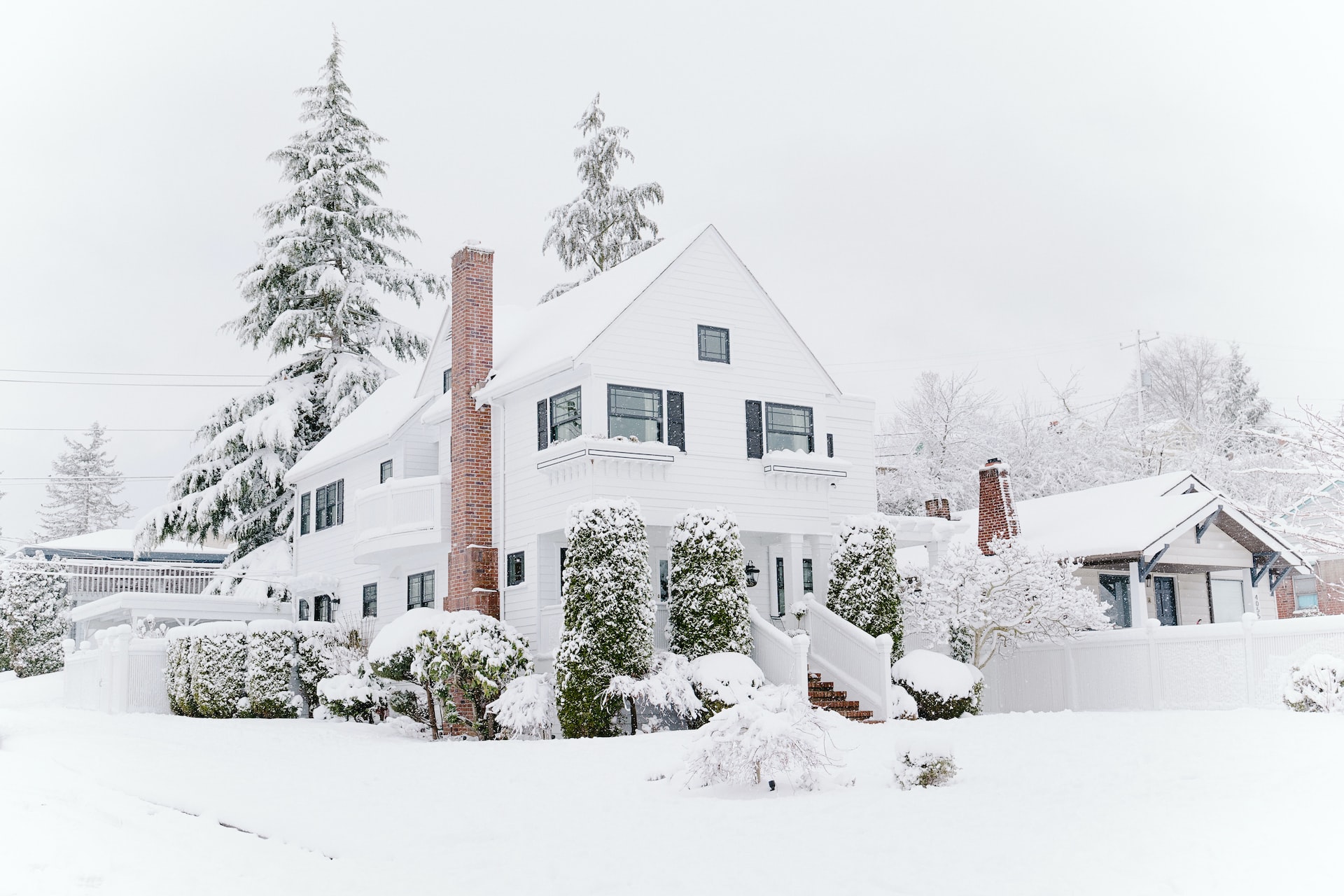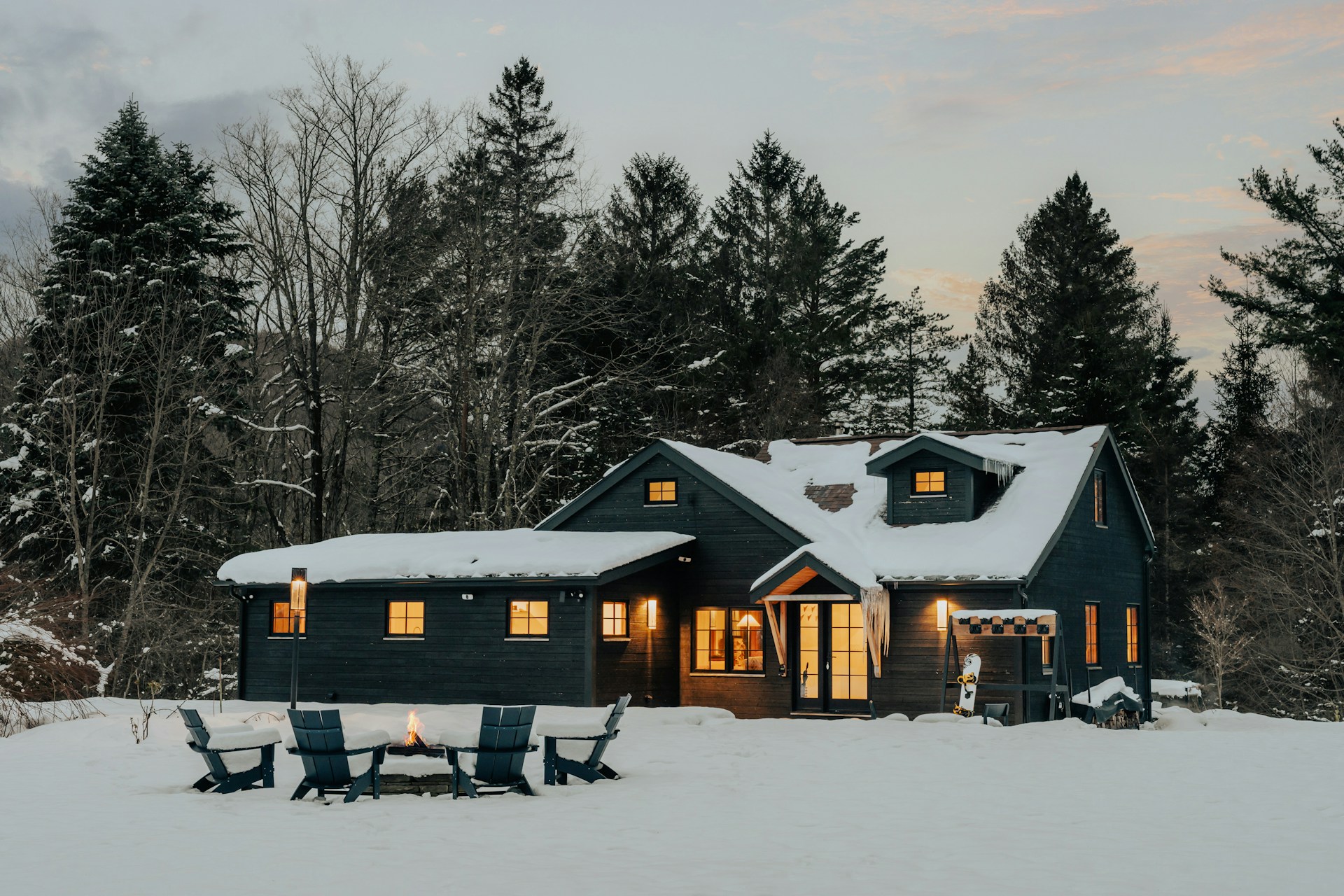Rising energy costs are a major concern for Canadians, especially in the winter. Ottawa residents have seen their energy bills skyrocket in recent years, and many are struggling to keep up with the payments.
There is a myriad of causes for rising heating costs, including inflation, cyclical fluctuations in the price of natural gas, geopolitical tensions in Europe reducing the global supply, and changes to carbon taxation as the Canadian economy phases out fossil fuels.
Whatever the cause, this is an important opportunity for Canadian homeowners to find ways to reduce their heating costs and improve their homes’ energy efficiency.
There are several ways to lower your energy bills, and by following these tips, you can save your energy costs this winter.
1. Upgrade Your Attic Insulation to lower your energy bills
Are your energy bills going through the roof?
If you’re looking to lower your energy bills this winter, the single best efficiency upgrade you can make is upgrading your attic insulation.
It is well-known that heat rises. Upgrading your attic insulation will lower your energy bills this winter in Canada because it will keep the heat in your home from escaping through the roof.
A typical Canadian home can expect to save 20% on their heating and cooling costs for the year, according to Energy Star. For some homes with little to no existing insulation, energy savings could exceed 40%.
It is important to ensure that you have enough insulation in your attic so that you don’t waste the heat your home generates. In addition to lowering your energy bills, upgrading attic insulation comes with other beneftis:
- You will extend the life of your HVAC equipment;
- Minimize the formation of ice dams, extending the life of your roof;
- Improve air quality – this is crucial when you consider the “stuffiness” of being at home in the winter;
- Increase the value of your home when reselling;
- Eliminate chilly drafts in your home, increasing comfort.
In particular, if your home is more than 40 years old, you should get your attic insulation inspected as soon as possible.
If you’re located in the Ottawa, ON area, Panda Insulation is a great option for upgrading your attic insulation. They offer a free attic inspection and assessment that can help you determine whether your home would benefit from an upgrade.
2. Insulate the Rest of Your Home
As we all know, winter in Canada can be brutal. Between the snow, ice, and cold temperatures, it’s no wonder so many of us spend much of our time indoors. However, this can also lead to high energy bills as we try to keep our homes warm and comfortable. One way to reduce your energy consumption is to ensure that your home is properly insulated.
Here are some key areas to focus on:
Exterior walls:
Heat can quickly escape if your home has cracks or gaps in the exterior walls, leading to higher energy bills. Fortunately, there are a number of ways to seal up these gaps, such as caulk, weather stripping, or spray foam insulation.
Basement:
Many homes have unfinished basements that are full of drafts and cold air. To improve the insulation of your basement, consider adding rigid foam board insulation to the walls or ceiling. You can also install a vapour barrier to help prevent moisture and humidity from entering the space.
Crawl space:
If your home has a crawl space, it’s important to make sure that it is properly insulated. This can be done by adding insulation to the floor joists or installing a vapour barrier on the ground.
Exposed floors:
If you have hardwood floors or tile floors, you may notice that they feel cold to the touch in winter. To solve this problem, you can install floor insulation beneath the subflooring. This will help to keep your floors warm and comfortable all winter long.
By insulating these key areas of your home, you can enjoy a warmer indoor environment while also saving money on your energy bills and lowering your energy costs.
3. Cut Back on Hot Water Usage
Winter is a time when energy bills in Canada can really start to spiral out of control. This is partly because we tend to use more hot water during the colder months. Hot water is the second most expensive energy expense in the average Canadian home, so it’s important to be as efficient as possible to lower your energy bills.
Adjust the Temperature of Your Water Heater
One of the quickest and easiest ways you can reduce your hot water usage and lower your energy bills is to simply adjust the temperature of your water heater. The U.S. Department of Energy recommends setting your water heater to 120 degrees Fahrenheit or 49 degrees Celsius. For every 10-degree Fahrenheit increase in temperature, you can expect your energy consumption for hot water usage to go up by 3-5%.
Before adjusting the temperature of your water heater, please consult your owner’s manual and warranty agreement. As a safety precaution, shut off the electricity to the water heater before displacing the panels.
Replace Your Shower Head
If you have an older shower head, it’s probably time for an upgrade. Newer shower heads are designed to be more efficient with water usage without sacrificing any pressure or quality. A low-flow shower head can save you up to 700 gallons of water per year, as well as lower your energy bills. Replacing an older shower head is a quick and easy fix that can make a big difference.
Consider Installing a Tankless Hot Water Heater
If you’re looking for a more long-term solution, you may want to consider installing a tankless hot water heater. Unlike traditional storage tank heaters that continuously heat and reheat stored water, even when you’re not using it, tankless heaters only heat water on demand. This can save you a significant amount of money on your energy bills, as well as provide an endless supply of hot water whenever you need it.
Install a Water Heater Timer
Another way to reduce your hot water usage and lower your energy bills is by installing a timer on your water heater. This way, you can set specific times for when the heater should be turned on and off. This is especially useful if you find that you’re not using hot water at certain times of the day or night.
Remove Sediment from Your Hot Water Heater
When sediment builds up in your hot water heater, it becomes less efficient and costs more money to operate. Sediment also causes damage to your hot water heater, which can lead to costly repairs down the road. To prevent this from happening, it’s important to regularly flush out sediments from your system according to the manufacturer’s instructions.
4. Install Air Sealing
Another way to reduce heating costs is to install air sealing in your home.
Air sealing helps to prevent heat loss by filling in gaps and cracks where warm air can escape. In addition, air sealing can improve the performance of your heating and cooling system by reducing the amount of work it has to do to maintain a comfortable temperature. As a result, you can save money on your energy bills and keep your home more comfortable this winter.
So if you’re looking for ways to lower energy costs, ask your contractor about air sealing. It’s an investment that will pay for itself in no time.
5. Install Weather Stripping
The weather outside may be frightful, but your energy bills don’t have to be.
You can keep your heating costs under control this winter by taking some simple steps to weatherproof your home. Caulking and weather-stripping are two of the most effective and inexpensive ways to prevent heat loss. For added protection, consider installing storm doors and windows. These products can make a big difference in how warm your home feels – and how much money you save on your energy bills.
So don’t let the colder months put a chill on your budget. Take action now to weatherproof your home and enjoy more comfortable and affordable winters for years to come.

6. Install Energy-efficient Lighting
Another way to reduce energy consumption this winter and lower energy bills is to switch to energy-efficient lighting.
LED bulbs, for example, use less power than traditional incandescent bulbs and can last up to 25 times longer.
Smart bulbs are another option that can help you save on your energy bill.
These bulbs can be controlled remotely, so you can turn them off when they’re not needed. Dimmers are also a great way to save energy. Adjusting the amount of light you’re using can lower your energy consumption without sacrificing brightness. This winter, make the switch to energy-efficient lighting and start saving on your energy bill.
7. Get a Smart Thermostat
If you’re looking for ways to lower your energy bills this winter, consider investing in a smart thermostat.
What’s so special about “smart” thermostats?
You can significantly reduce your energy consumption by making small adjustments to your heating and cooling schedule. Smart thermostats also have built-in features that help to reduce further energy consumption, such as scheduling and occupancy sensors. As a result, investing in a smart thermostat is an effective way to lower your energy bills this winter.
8. Get an Energy Audit to see where you can lower your energy bills
An energy audit is an assessment of your home’s energy usage. It looks at factors such as insulation, air sealing, windows and doors, and mechanical systems. The goal of an energy audit is to identify areas where your home is losing energy and recommend ways to improve its energy efficiency.
An energy audit can help you plan upgrades to your home and make you eligible for grant and rebate programs. The best way to get an energy audit is through the Greener Homes Grant. If you are eligible for the Greener Homes Grant, the energy audit cost can be reimbursed.

Discounted Home Energy Audits, Exclusively with Panda
You will receive a discounted home energy audit from Energuy, a certified partner of Canada’s Greener Homes Grant, when you book a free attic inspection with Panda Insulation.

Book today to start saving!
9. Change Furnace Filters Regularly
As you know, your furnace works hard to keep your home warm during the winter months.
One way you can help your furnace run more efficiently is by regularly changing the filters. This will help remove any dust or debris clogging the system and causing it to work harder than necessary. In addition, you may want to consider getting a furnace tune-up. This will ensure that all the parts are working properly and that there is no dirt or debris build-up.
Additionally, if your furnace is quite old, it might be time for a replacement. A new furnace will be more efficient and can help to lower your energy bills.
10. Take Advantage of Off-peak Rates
For most Canadian utility providers, energy rates vary depending on the time of day. Off-peak rates are the cheapest, while on-peak rates are the most expensive. Mid-peak rates fall somewhere in between. You can lower your energy bills this winter by taking advantage of off-peak rates. Here are some tips:
- Use appliances that use a lot of electricity during off-peak hours. This includes things like washers, dryers, and dishwashers.
- Consider doing laundry at off-peak hours.
- If you have an electric car, charge it during off-peak hours.
- If you have a wood stove or fireplace, use it to heat your home during off-peak hours instead of using electric heaters.
Finally, make sure to talk to your energy provider about TOU rates and how they can save you money this winter.
11. Wash Laundry in Cold Water at Off-peak Rates
Washing your laundry in cold water can help you save money on your energy bills this winter.
Heating water accounts for a significant portion of the energy used by laundry machines, so using cold water can help you to reduce your energy consumption. Seventy-five to ninety per cent of the electricity your machine consumes is used to heat the water. What a waste!
But does cold water washing work?
According to General Electric, it doesn’t just work, it works better than warm water washing in most cases.
For some stains, warm water can actually make the foreign substance set in to the fabric. Additionally, with cold water washing, clothing is less likely to shrink, fade, or otherwise get ruined. Delicate fabrics do especially well in cold water.
Finally, remember only to wash full loads of laundry. Not only is this more efficient in terms of energy use, but it will also save you money on your water bill. So, this winter, save yourself some money by washing your laundry in cold water at off-peak times. And be sure to check if your machine has an Energy Star symbol–it means it’s among the most energy-efficient models on the market.
Additionally, many utility companies offer lower rates for electricity used during off-peak hours. By washing your laundry at night or during the day, when rates are lower, you can further reduce your energy costs.
12. Upgrade Windows and Doors
As Canadians we know winter heating costs can be high. Drafts from poorly insulated windows and doors can make it even worse.
Fortunately, there are a number of things you can do to mitigate this problem and lower your energy bills this winter.
Replacing old, inefficient windows with new, energy-efficient models can significantly reduce your heating costs. The same is true for doors.
Contacting a professional energy auditor is a good way to find out if your windows and doors need to be replaced. They can evaluate your home’s needs and recommend the best course of action. Taking these steps can help you keep your home comfortable and save money on your energy bills this winter.
13. Keep Your Vents Clear
Another way to help offset the cost of heating your home this winter is to make sure that your vents are clear and unobstructed.
When furniture, carpets, or other objects block vents, your heating system must work harder to regulate temperature. This not only drives up your energy costs, but can also put unnecessary strain on your heating system, leading to repairs or replacements down the road.
By keeping vents clear, you can reduce your energy bills and help prolong the life of your heating system.
So before you turn on the heat this winter, take a few moments to clear away any obstructions from your vents. It’s a simple task that can make a big difference in your wallet and your home comfort.
14. Eliminate Phantom Loads
With the colder months comes higher electricity bills as we try to heat our homes to stay comfortable. One way to help lower your energy bills this winter is to eliminate phantom loads.
Phantom loads, also referred to as standby power, is the power consumed by an appliance while turned off or in standby mode. It’s the energy that keeps the settings on your computer or VCR, but it also consumes money with unnecessary energy use. In the average home, 10% of the total power used comes from phantom loads.
Thankfully, there are easy ways to mitigate these energy-sucking ghosts.
Smart strips are one solution that can be used to automatically cut power to plugs that are not in use. These can be found at most hardware stores and will make a big difference in your winter energy bills.
Another tip is unplugging appliances when not in use, since they will still be sapping electricity just by plugging in. Start saving this winter by nixing those phantom loads.
15. Financial Assistance to lower your energy bills
If you’re struggling to keep up with your energy bills, you may be eligible for financial assistance. Your province or municipality may offer programs to help to qualify low-income households with their utility bills.
For example, if you live in Ontario and your household qualifies, you may be eligible to receive up to 17% off your energy bill each month as part of Ontario’s Electricity Support Program.
If you’re struggling to pay your energy bills this winter, be sure to check out these programs.
16. Finance home upgrades to lower your energy bills
In addition, there are programs available to help homeowners afford energy efficiency retrofits.
The Greener Homes Grant is a federal government program that offers rebates to help Canadians make their homes more energy-efficient. With the Greener Homes Grant, you can save up to $5,600 on home efficiency upgrades like attic insulation.
Additionally, Natural Resources Canada now offers the Greener Homes Loan, which can provide homeowners with an additional $40,000 in low-cost financing for home efficiency upgrades.
The Enbridge Ontario Efficiency Rebate also offers rebates for energy-efficient upgrades, but is exclusively available to qualifying Enbridge customers in Ontario. Enbridge Gas customers can receive over $5,000 in home efficiency rebates when you complete two or more energy-efficient upgrades.
Make a plan for Lowering energy costs this winter
As we head into winter, it’s important to think about ways to reduce our energy consumption and lower our bills. We can take several of the above-mentioned tips, like clearing away obstructions from our vents, to make a big difference. By following these tips, you can all stay comfortable this winter by lowering your energy costs.
Often, big upgrades like attic insulation might feel overwhelming, but they too begin with a simple step.
If you’re in the Ottawa, ON, area, you’re in luck: you can book a free, zero-obligation attic inspection with Panda Insulation today to see if your home would benefit from an upgrade.
If you’re not in the Ottawa area, we suggest applying for the Greener Homes Grant online as a first step.
Whatever your situation, the Panda Insulation team wishes you a fun, safe winter in an energy-efficient home!




